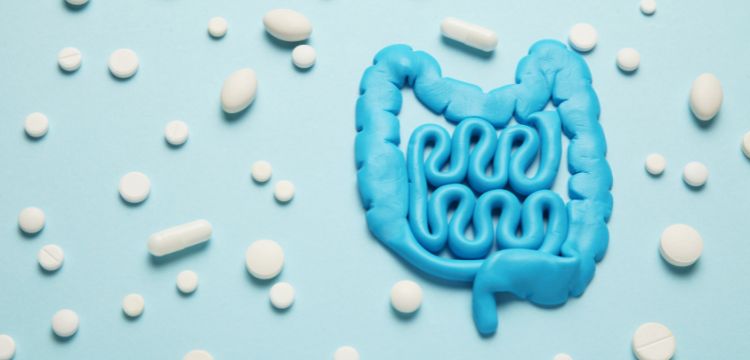
- Business
- Finance
- Funding
- Fundraising
- Leadership
- Governance
- Grants
- Mergers
- Investment
- Partnerships
- Policy
- Regulations





Save the Children welcomes Australia’s move to rejoin the Green Climate Fund
Menchie Khairuddin
Budget burdens survivors with the cost of domestic violence for another year
Menchie Khairuddin
Shoalhaven business helps lower homeowner energy costs
Menchie Khairuddin
What Can Charities Do if They Have Gone into Debt?
Third Sector
New funding opportunities from Bupa
Menchie Khairuddin
First Australians Capital closes successful Catalytic Impact Funds
Menchie Khairuddin
Rural communities continue to fall through funding gap
Menchie Khairuddin
FRRR and Charter Hall expand partnership
Menchie Khairuddin
$5M partnership to strengthen capacity and resilience
Menchie Khairuddin

The Sydney Women’s Fund Domestic Violence Appeal
Menchie Khairuddin

Improving Collaboration Between Fundraising Teams and Volunteer Managers
Menchie Khairuddin
Footy clubs to combat mental health
Menchie Khairuddin
$100M raised for sick kids by the Sydney Children’s Hospitals Foundation
Menchie KhairuddinImproving Collaboration Between Fundraising Teams and Volunteer Managers
Menchie Khairuddin
Nearly $3M raised for Sydney local battling terminal cancer
Menchie Khairuddin
Fundraising for Mental Health Awareness
Third Sector
Melbourne Pedalthon to Raise $100K for Below the Belt Cancers
Menchie Khairuddin
Parkinson’s NSW to raise awareness in annual fundraiser
Menchie Khairuddin
Indigenous Literacy Foundation welcomes new board members
Menchie Khairuddin

CREATE Foundation appoints Imogen Edeson as new CEO
Menchie Khairuddin
SSI Allianz scholarship recipient inspires students
Menchie Khairuddin
Redkite welcomes Craig Dunn to the Board of Directors
Menchie Khairuddin


Young people to drive residential care reform in Queensland
Menchie Khairuddin


Young people to drive residential care reform in Queensland
Menchie Khairuddin

Voluntary disclosure policies lead global sustainability agenda
Menchie Khairuddin

NFP study reveals increasing demands has directors at a tipping point
Menchie Khairuddin

Future2 Foundation opens nominations for its grants program
Menchie Khairuddin
$1.3M in grants for rural communities
Menchie Khairuddin
$5K in grants from Nutrien Ag Solutions
Menchie Khairuddin
$200K in funding to be shared for community projects
Third Sector
$250K in grants through Seeds of Renewal
Menchie Khairuddin
Safe Online awards $10M to 23 new grantees
Menchie Khairuddin
$124,478K in grants awarded to local not-for-profits
Menchie Khairuddin
$2.1M in grants open for Social Impact Evaluations
Menchie Khairuddin
Groundbreaking merger between SecondBite and FareShare
Menchie Khairuddin
Kids First Australia expands to support at-risk children and youth
Menchie Khairuddin
HESTA and Mercy Super announces plan to merge
Lourdes Antenor





Karitane receives $13M for Fairfield children and families
Menchie Khairuddin
WHEN welcomes four new Board Members
Menchie Khairuddin
$2M committed to First Australians Capital Catalytic Fund
Menchie Khairuddin



New partnership commits $100M to revolutionise global immunology research
Menchie Khairuddin


Calls for more housing relief
Menchie Khairuddin
FRRR and Charter Hall expand partnership
Menchie Khairuddin
$5M partnership to strengthen capacity and resilience
Menchie Khairuddin

Saputo Dairy Australia renews its collaboration with Foodbank
Menchie Khairuddin
A pre-winter wellness boost for The Big Issue vendors
Menchie Khairuddin


ASU calls for immediate action following the murders of 4 women this week
Menchie Khairuddin
The Paul Ramsay Foundation on the referendum result
Menchie Khairuddin
Budget burdens survivors with the cost of domestic violence for another year
Menchie Khairuddin
Children displaced by climate shocks doubled to a record high
Menchie Khairuddin

New development policy a welcome step, in a longer journey
Menchie Khairuddin
New reform a welcome step to free charities from red tape
Menchie Khairuddin
Fundraising harmonisation a win for charities
Menchie Khairuddin
ACNC calls on Charities to submit their Annual Information Statement
Menchie Khairuddin




- Social Affairs
- Child Protection
- Education
- Environment
- Gender and LGBTIQ+
- Health
- Housing and Homelessness
- Humanitarian Crisis
- Mental Health
- Youth
- Child Protection
- Education
- Environment
- Gender and LGBTIQ+
- Health
- Housing and Homelessness
- Humanitarian Crisis
- Mental Health
- Youth

NAPCAN launches online modules to empower safe conversations
Menchie Khairuddin
SSI Allianz scholarship recipient inspires students
Menchie Khairuddin


Sons of Bavaria to quit the Clarence
Menchie Khairuddin
Actuaries climate index points to disease risk, increased fuel load
Menchie Khairuddin

Voluntary disclosure policies lead global sustainability agenda
Menchie Khairuddin

Making end-of-life care inclusive for LGBTIQ+ people
Menchie Khairuddin

Opinion: How To Take Action For A Gender Equal Future
Kirsty Robertson
Macular Disease Foundation Australia launches free support service
Menchie Khairuddin
Nearly $3M raised for Sydney local battling terminal cancer
Menchie Khairuddin
New data reveals demand for mental health support rises
Menchie Khairuddin
Virtual support reshaping rural healthcare
Menchie Khairuddin

Calls for more housing relief
Menchie Khairuddin
More Australians in need as cost of living sees donations drop
Menchie Khairuddin


Saputo Dairy Australia renews its collaboration with Foodbank
Menchie Khairuddin
Groundbreaking merger between SecondBite and FareShare
Menchie Khairuddin

Doubled donations to meet growing demand for PNDA support
Arabella Gibson
New data reveals demand for mental health support rises
Menchie Khairuddin

A free initiative supporting schools to respond to suicide
Menchie Khairuddin
NAPCAN launches online modules to empower safe conversations
Menchie Khairuddin
Young people to drive residential care reform in Queensland
Menchie Khairuddin
More than $135k raised in charity yacht race for homeless youth
Menchie Khairuddin
Stark reminder of the increasing number of homeless youth
Menchie Khairuddin - Appointments
- First Nations
- Latest Stories

Doubled donations to meet growing demand for PNDA support
Arabella Gibson
Opinion: The importance of improving inclusivity online
Josh Crawford



Virtual support reshaping rural healthcare
Menchie Khairuddin
WHEN welcomes four new Board Members
Menchie Khairuddin - Events
- Authors
- Partners






























